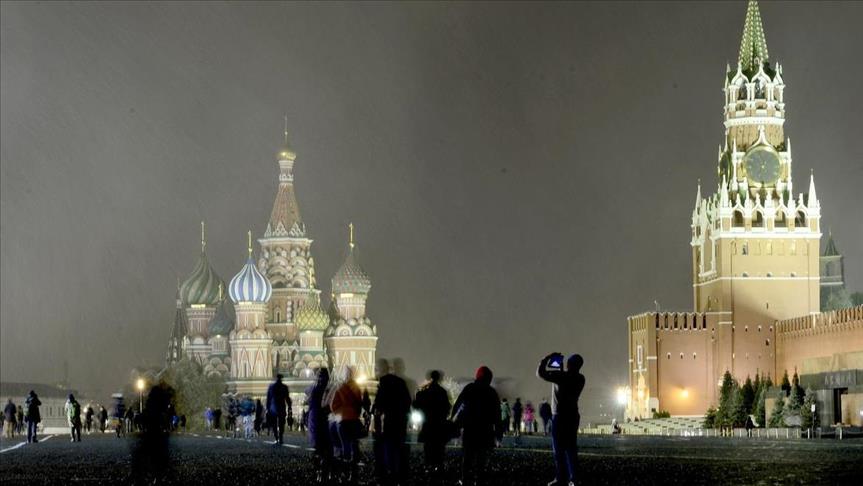ANALYSIS - Internal clashes expose need for Russian reform
Russian academic warns that upcoming legislative elections could produce candidates with loyalties divided between Putin and regions they represent

London, City of
By Michael Sercan Daventry
LONDON
Russia’s ruling regime will struggle to survive without modernization as income from petrochemicals dries up, according to an analysis of the country’s domestic political situation.
Nikolai Petrov, professor at the Moscow-based Higher School of Economics, argued in a column for the Moscow Times on Friday that President Vladimir Putin’s recent foreign policy adventures in Ukraine and Syria were part of his attempts to orchestrate a sense of legitimacy for himself.
“Ordinarily, officials gain electoral legitimacy simply by winning in fair elections. But a national leader like Putin needs a larger, more commanding mandate. That sort of orchestrated legitimacy is incompatible with competitive elections,” Petrov wrote in the English-language weekly.
“That is why the Kremlin has been eliminating the direct election of mayors and has made regional governor elections a foregone conclusion. As well as trying to kill the public's interest in elections, the Kremlin prohibited the democratic opposition from participating in elections in 2015 — the authorities feared not that the opposition would win too many votes, but that its participation would lead to legitimate criticism of the ruling regime.”
Petrov said there had been a significant change in the “internal balance” within Russia’s ruling elite over the last two years. Regional officials with roots in law enforcement have long competed with each other for influence but the high value of natural resources traditionally provided an income for all. But the dramatic fall in oil prices has created a different mood in Russia.
“The problem is that the current system is based on ever-expanding revenues that provide enough for all,” wrote Petrov. “There is no functioning mechanism for resolving conflicting interests and redistributing property and incomes among contending groups.”
The mood has created struggles between governing circles – a recent spat between security service leaders and Chechen leader Ramzan Kadyrov being one example – aimed at accessing “the crisis-stricken budget and the chance to curry favor with senior leaders”.
“Therefore, parliamentary elections in September will be held against a backdrop of increased competition among the elite,” Petrov wrote.
“The Russian political system is archaic. It was created during a historical period when rulers were awash in petrodollars and there was simply no apparent need for democratic institutions, checks and balances, independent judiciary, strong parliament, federalism, local government and so forth. Without easy money, the ruling regime will not survive without modernization.”
It is against this backdrop that Russia will hold legislative elections to the Duma, the lower chamber of the country’s parliament, in September 2016. But Petrov’s argument is that these elections will create candidates with loyalties divided between the Kremlin on one side and regional elites and business leaders on the other.
Petrov argued it will be increasingly difficult for Putin to maintain control over a Duma with such split allegiances: “Money is running low and the Kremlin more often resorts to various ‘sticks’ rather than ‘carrots’ when managing regional elections. Citizens feel the decline in living standards, and the Russian people now have the memory of the protests in 2011-2012.”
On Thursday, the ruble dropped to a record low against the dollar, down to 85.999. It has lost about 20 percent in value against the dollar in the past three weeks.
Petrov added that horse-trading was already underway to produce candidates, concluding with a word of warning: “there is no use taking the Kremlin's plans too seriously because there are too many variables beyond its control that could come into play, and Russia's political system is far too unstable to predict how all of this will end”.








